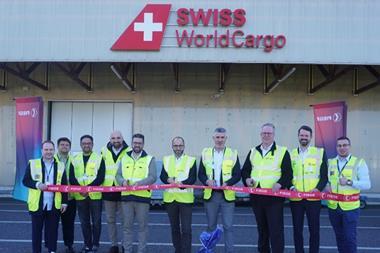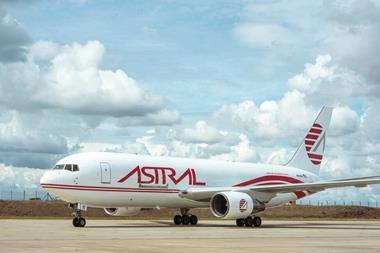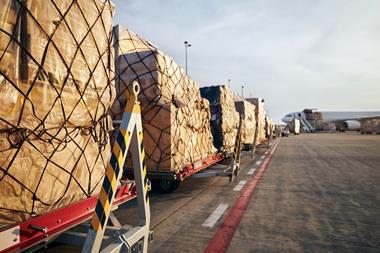Atlas Air Worldwide Holdings will reactivate another B747 freighter after improvements in its third quarter figures thanks in part to expanded its e-commerce operations with Amazon and Alibaba.
The lessor reported that third-quarter revenues increased by 24.9% year on year to $809.9m and net income increased 23.5% year on year to $74m. Meanwhile, adjusted ebitda improved by 105.3% to $196.3m.
Volumes in the third quarter of 2020 increased to 90,528 block hours compared with 79,310 in the third quarter of 2019.
Chief executive John Dietrich explained: “We continue to broaden our customer base and grow with existing customers to maximise market opportunities. We further increased our roster of long-term charter customers, including the addition of Cainiao, the logistics arm of Alibaba, as well as expanding with HP Inc. and several large global freight forwarders.
“We also expanded operations for Amazon, where we began CMI flying three additional [Boeing] 737 freighters since September. We are now operating eight B737s for Amazon, complementing the large fleet of B767s that we have with them.
"Importantly, these long-term customer agreements provide secure and attractive earnings streams and deepen our strategic position in the fast-growing e-commerce sector, as well as in important global markets like China and South America.
“We are seeing substantial demand for our long-haul widebody services, both near-and long-term, at attractive yields. We are leveraging the agility of our business model and the scale of our fleet and global operations to serve this increased customer demand."
Looking to the fourth quarter, and subject to any material Covid-19 developments, the lessor anticipates "solid volumes and yields" driven by continued e-commerce growth and end-of-the-year airfreight demand, coupled with the reduction of available cargo capacity in the market.
"To meet customer demand, we are reactivating our fourth 747 freighter that had been previously parked," Dietrich said. "This will add to the three 747 freighters and the 777 we placed back into service during the second quarter of 2020."
On segment performance in the third quarter, Atlas said that higher ACMI segment revenue during the period primarily reflected an increase in the average revenue per block hour and increased flying, partially offset by the redeployment of 747-400 aircraft to the charter segment.
Higher charter segment revenue during the quarter was primarily due to an increase in flying, partially offset by a decrease in the average revenue per block hour due to lower fuel costs.
Charter segment contribution was primarily driven by the increase in commercial cargo yields (excluding fuel) and demand for freighter aircraft, reflecting the reduction of available capacity in the market,the disruption of global supply chains due to the pandemic and the lessor's ability to increase utilisation.
In addition, segment contribution benefited from a reduction in aircraft rent and depreciation,and the redeployment of 747-400 aircraft from ACMI and the operation of a777-200freighter from dry leasing.










